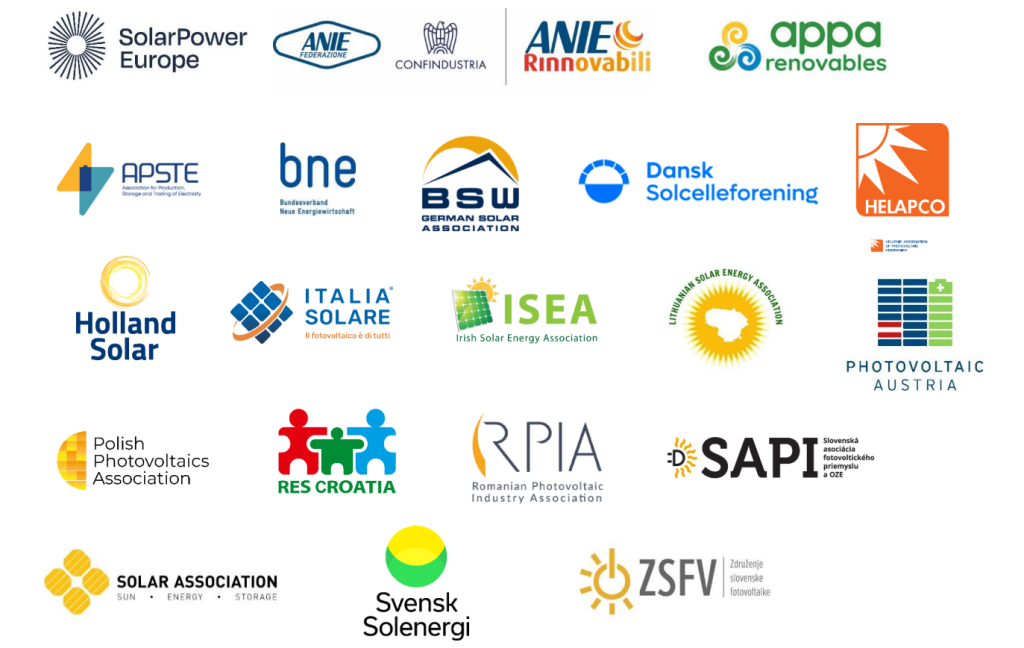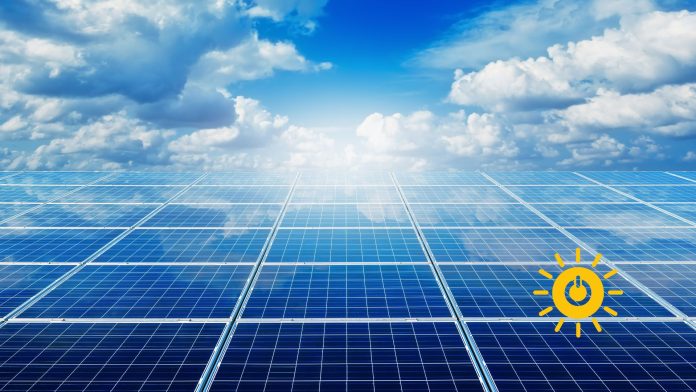RESC, along with 22 other European associations for solar and renewable energy, has supported a letter written in collaboration with SolarPower Europe aimed at alerting EU member state governments to the latest developments in the global solar sector, marked by a steep decline in solar module prices in Europe in recent months. SolarPower Europe has sent the joint letter to the European Commission, Executive Vice-President Maroš Šefčovič, and Commissioners Kadri Simson and Thierry Breton.
We quote it in full:
European and national solar energy associations oppose trade barriers and instead call for a smart industrial strategy
Dear Executive Vice-President,
We, the representatives of the solar systems sector at European and national levels, are addressing you to point out the latest developments in the global solar systems sector, marked by a steep fall in solar module prices in Europe in recent months.
While the reduction in costs is very good news for accelerating a cost-effective energy transition, it simultaneously creates an uncertain situation for European solar system manufacturers. Encouraged by broad political support for the return of solar system production across the entire value chain, the EU’s solar industry is increasing its production capacities to at least 30 GW by 2030 as stated in the proposed Net-Zero Industry Act. Some of these companies are currently at risk of insolvency, as we have already witnessed in the case of ingot producer Norwegian Crystals which filed for bankruptcy on August 21, 2023. If further measures are not taken, the European ambition to return solar system production will be extremely difficult to achieve.
This situation underscores the EU’s urgency to develop and implement a strong and enduring industrial strategy for the solar sector.
The solutions for balancing are available and very clear:
- First, we ask member states and delegations to request the European Commission to continue adjusting the EU state aid framework (Temporary Crisis and Transition Framework) and in particular allow member states to support operational costs, i.e., the running costs of factories.
- Second, we urge members and delegations to urgently adopt the EU’s Net-Zero Industry Act and establish special Resilience Auction Systems in the markets in the coming months. Therefore, Article 20 of the NZIA should be adjusted to enable members to develop special auctions with limited but growing capacities, which will reflect the increase of European production capacities in line with the objectives of the EU’s Net-Zero Industry Act and the European Solar Industry Alliance (ESIA) of at least 30 GW by 2030 across the EU, which would be equivalent to 40% of the solar systems market. It is also crucial to avoid setting any prerequisites for solar production, as this could have a detrimental impact on the speed and cost-effectiveness of the energy transition and the development of solar systems in Europe.
- Third, we ask members and delegations to request financial support from the European Commission at the EU level for existing national subsidy systems of member states aimed at the solar systems supply chain. This framework could be linked to the Innovation Fund and existing national funds/mechanisms or support instruments.
- Fourth, we invite members and delegations to use the Recovery and Resilience Facility (RRF) as much as possible to support the production of solar systems. A good example can be found in Italy and the Netherlands.
With the right political will, all these elements can be implemented in a short time, even before the end of the year.
In the urgent situation we find ourselves in, our time to act is limited. Therefore, we call on EU leaders to focus on the constructive solutions mentioned above. We must not risk slowing down the solar-led transition at this critical juncture.
As history shows, the practice of unfair trade and the application of trade barriers are losing scenarios for Europe and should be rejected.
Tariffs and market barriers endanger the currently rapidly growing solar system market and ecosystem in Europe. This includes installers, developers, as well as many component manufacturers. They also jeopardize political goals for solar installations and deprive consumers of economic viability, which otherwise makes solar systems one of the most attractive energy production technologies for both decentralized consumer markets and industrial production and consumption. We ask members and commissioners to reject such proposals.
While creating difficult conditions for European producers, the recent reductions in solar system prices are the consequence of well-known market dynamics, which include a combination of oversupply on the supply side and overordering on the demand side resulting in sharp price drops for solar modules and other system components.
A better strategy would be to reward the European solar industry for the rapid effort it is ready to deliver to Europe: an energy production system that is more resilient and less dependent on geopolitical conditions in line with the goals set by the European Commission.
The signatories of this message are grateful for your consideration of the points mentioned above and are ready to discuss this important issue with you as soon as possible.











